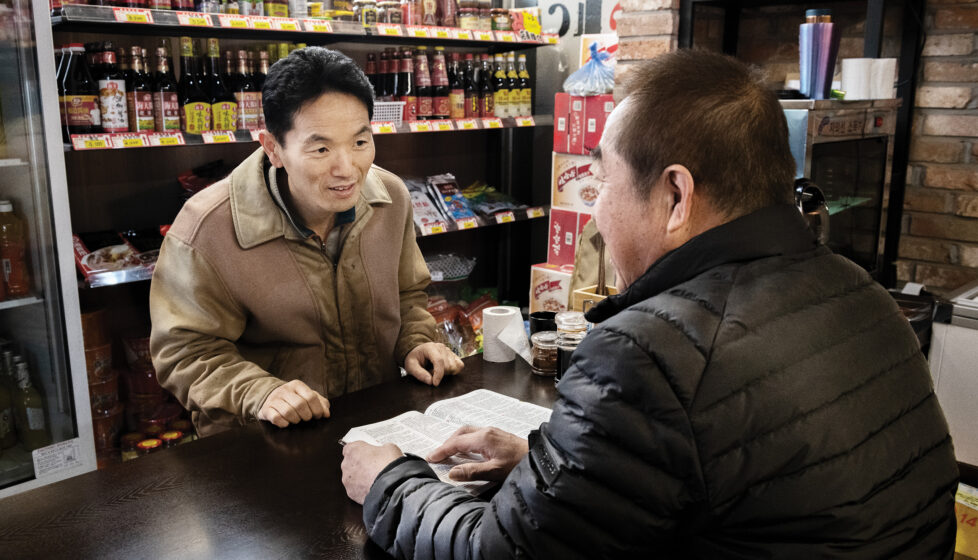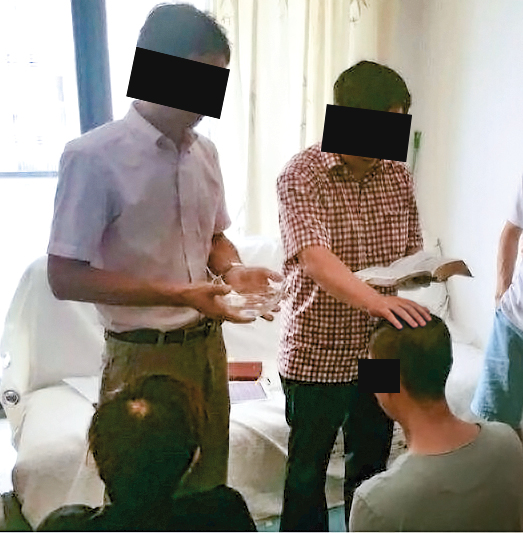Chinese Christian Leads North Korean Official to Christ
North Korea

After spending five years building relationships with 40 North Koreans in China, a faithful Chinese Christian eventually led one man — a North Korean government official — to Jesus.
Lee Joon-ki scanned the Chinese coffee shop carefully for the right place to sit.
The shop’s owner, a fellow Christian, had told him about a middle-aged laborer from North Korea who was in the shop, and Joon-ki wanted to sit in just the right spot to start a conversation with him.
After sitting down at a table near the man, Joon-ki began a casual conversation with him, even managing to draw the coffee-shop owner into the discussion. These conversations, which can quickly turn dangerous for everyone involved, are what he lives for; Joon-ki is a front-line worker who shares the gospel with North Koreans inside China, near the border with North Korea.
“Encountering these North Korean people, building relationships and leading them to Christ, is God’s work; it’s full of God’s grace,” he said. “Just meeting with him for an hour is so precious. It is not something we can do normally. Each time could be last time.”

Joon-ki, an ordained pastor, has served as a front-line worker for over six years, sacrificing time with his family to share the gospel with North Koreans. He risks his life for the gospel, participating in everything from Bible balloon launches to distributing God’s Word near the border.
While his primary goal is to further God’s kingdom, Joon-ki also has a very personal reason for reaching out to North Koreans.
His father, a pastor, left North Korea in 1954 at the age of about 20 after facing intense persecution from the country’s relatively new Communist regime. “I have heard so many things about North Korea from my dad that have shaped my way of thinking,” Joon-ki said of his father, who died not long ago. “North Korea is not my enemy or something foreign to me. It is more like my stories, my nation, my dad’s nation, my family story. My father really influenced me to become a missionary to the North Korean people.”
Tens of thousands of poor North Koreans are forced by their government to work in China and other countries each year and send their wages back to North Korea. They are allowed to keep only a small percentage of their earnings.
Joon-ki often tries to share the gospel with North Korean leaders who oversee units of 10 to 15 workers. He seeks these leaders because of their influence and because they generally don’t have to report to a superior in China. Still, he meets with them privately so the laborers do not report them. “They are so cautious and alert about people possibly reporting them to authorities, so the gospel isn’t shared in one single meeting,” he said.

Showing the North Koreans love is Joon-ki’s approach to sharing the gospel. “As I build a relationship with them, sometimes people can become sick or they need financial aid, and they ask me to provide something,” he said. “When they receive my help, the relationship deepens. Then the North Korean people begin to realize that the people who are called Christians are somehow different. That is how the conversation goes on and on.”
The man he spoke with in the coffee shop, a North Korean government official and former military leader, was in China to supervise 15 North Korean women working at a restaurant. As the unit’s leader, he monitored each of his workers to ensure they didn’t betray their country’s official religion, Juche. Those who sway from the ideology of self-reliance often face harsh punishment.
Joon-ki’s biggest opportunity to show him love was when the man became ill and needed medicine. Joon-ki purchased the medication he needed and made sure he received it.
Then, one day in October 2017, he went a step further and sent the man a Bible. When the man opened the package in front of 10 of his workers, he acted angry about receiving it. But the anger wasn’t entirely genuine; he knew he had to act angry so no one would report him for having a Bible. In the end, though, he was a little upset by the package.
“I put him in a dangerous situation, so basically the relationship was a little unstable for a moment,” Joon-ki said. “After a while, I came to him again and apologized that I unintentionally put him in a dangerous situation. He accepted my apology. The relationship was restored.”
Later that month, the North Korean man invited Joon-ki to his home — a big step in their friendship. The man had been suffering from liver problems for some time, so Joon-ki brought him more medicine. As he entered the home, he was greeted by pictures of North Korea’s three successive Communist dictators: Kim Il Sung, Kim Jong Il and Kim Jong Un. Several books on Juche were stacked on a table, and files of the women in his unit were strewn around the room.
Joon-ki knew their meeting went against everything taught in the books stacked on the table. “North Koreans are prohibited from meeting foreigners, even Han Chinese in China,” he said. “It doesn’t matter who they are. So if he opens his house and brings a foreigner over, that is really dangerous. He put his life on the line.”
Joon-ki continued to visit the man at his home, praying with him and discussing the Scriptures, and eventually the man started reading the Bible and listening to sermons on his own. Finally, after months of talks, the man who had once pledged loyalty to the North Korean government confessed his need for Christ’s atoning work on the cross.
His declaration to follow Jesus didn’t come lightly; he knows he will likely be killed if anyone in North Korea suspects he is a Christian. And in a country where stealing is almost a necessity for survival, he knows he must stop stealing in order to obey God’s Word. That alone could be seen as suspect.
“He has to live the life of a Christian, and that is truly against the North Korean way of life,” Joon-ki said.
In December 2018, at the end of his three-year assignment in China, the man returned to Pyongyang. Although he has reunited with his family, he is not the same man. He now willingly bears a cross, which comes with heavy consequences should he be discovered as a Christian.
Joon-ki prays for a way to meet his friend in Pyongyang, and if the door ever opens he will be there. For now, he smuggles letters into North Korea to encourage him, knowing their fellowship isn’t over because they’re now brothers in Christ.


 Guide
Guide